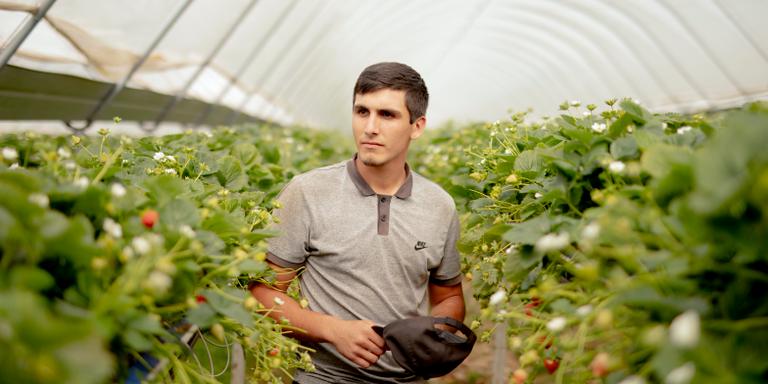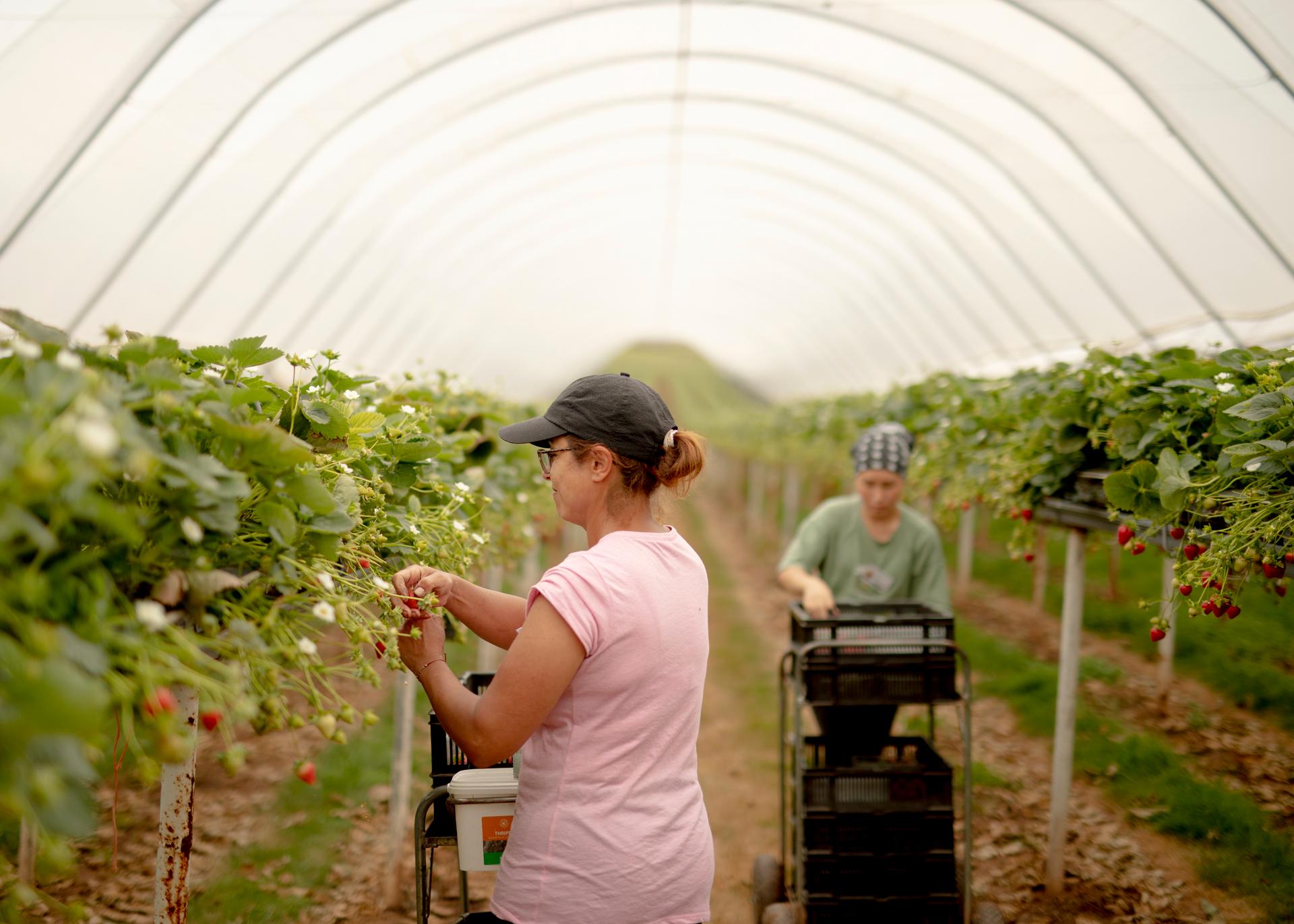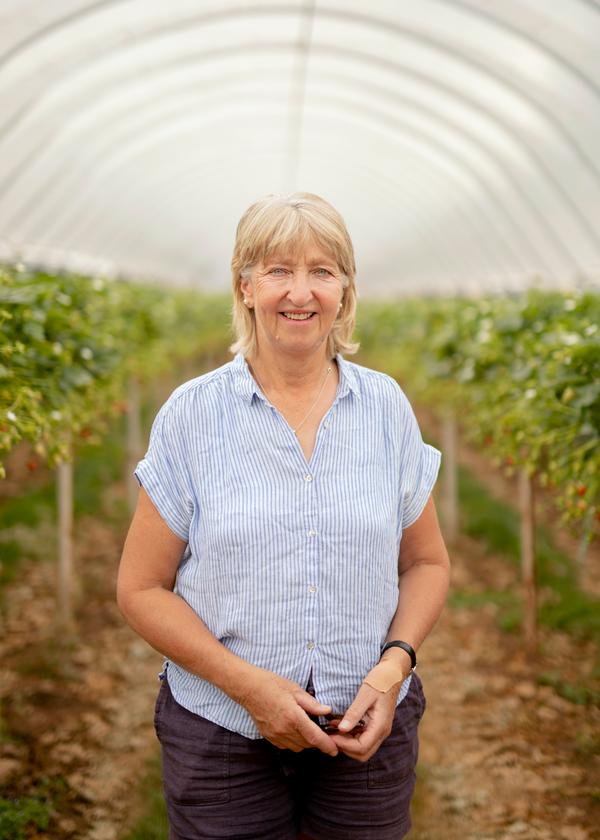


Post-Brexit, migrant farm workers in the UK increasingly come from Asia
FeatureUK farms are no longer relying on Romanian or Polish workers but on a tightly controlled workforce from Central Asia. Despite the promises made by Brexiters, the number of immigrants has not gone down – quite the contrary, in fact.
He has just placed another crate of strawberries in the back of the van. Before setting off again to keep up the pace of work, he takes a minute to explain his situation. This young man comes from Kyrgyzstan, where he was the director of a water purification project for a major development bank. How did he end up picking berries in Herefordshire, in the West of England? "Here I earn in a week what I used to earn in a month back home. I'm here for the money."
Along with her husband, Christine Snell owns some 160 hectares planted with strawberries, raspberries, blackberries and blackcurrants. New faces have been arriving in their fields in recent years. With Brexit and the end of free movement for European workers, she has to recruit from further afield – much further afield. "Now they come from the 'stan' countries: Kazakhstan, Kyrgyzstan, Uzbekistan," she explained. Central Asia is replacing Central Europe as the source of the labor needed to pick 1,000 tonnes of strawberries and keep the packaging plant running.
At the height of summer, she needs almost 300 people; in the depths of winter, around 40 is enough. Most live on site in mobile homes for up to six months, the duration of their visa. They receive minimum wage (£10.42, or €12.10, an hour), plus a bonus that can of an extra 50% or more for the most productive workers, depending on the quantity of fruit picked.

A subtle hierarchy of nationalities
In the fields, a subtle hierarchy of nationalities has now set in. At the top are the Europeans, who arrived before Brexit and have obtained settled status, which gives them the right to stay in the UK. Many, like Ion Avram, a Romanian who has been coming to Snell’s farm for 19 years, spend the winter in their country of origin and return every summer at harvest time. Below them in the pecking order are the newcomers. Most don't speak a word of English, leading to communication challenges. "I speak a little Russian, they do too, and we manage to understand each other in that language," Avram explained. "It's hard work, but I come back every year for the money," said this veterinarian by training, whose 6-year-old son is waiting for him to return to Romania.

British agriculture is facing a severe labor shortage. "Access to migrant labor has been crucial for filling labor gaps in the food supply chain but acquiring migrant labor has become increasingly challenging," warned John Shropshire, chairman of G's Fresh, a major agri-food group, in June in a report on the subject submitted to the British government. The UK, he points out, is not alone in this problem: "Our international and European counterparts face similar obstacles as they expand their search for labor beyond local regions." However, in addition to the UK’s 4% unemployment rate and the effects of the Covid-19 pandemic, which have caused many employees to distance themselves from work, "reduced access to workers from the European Union [has] contributed to this problem," the report noted.
You have 65.38% of this article left to read. The rest is for subscribers only.
